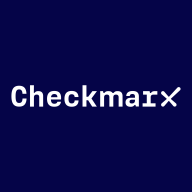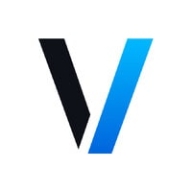


Veracode and Checkmarx One compete in the application security testing category. Veracode seems to have an edge due to its comprehensive AppSec training and integration capabilities.
Features: Veracode offers robust scanning capabilities and an API for seamless integration, making it ideal for automated DevOps environments like Jenkins. Its comprehensive vulnerability management includes static, dynamic, and software composition analysis, all within a SaaS model, reducing infrastructure overhead. Checkmarx One stands out with its extensive language support and strong SAST capabilities that do not require code compilation, offering deep insights into code analysis with customizable rules and results with fewer false positives.
Room for Improvement: Veracode could improve the accuracy of its reporting and work on reducing false positives and enhancing its interface and API integration based on user feedback. Checkmarx One could benefit from improving false-positive rates and enhancing integration, especially with dynamic and API security. Users are also looking for better support for emerging technologies and more flexible pricing for smaller teams.
Ease of Deployment and Customer Service: Veracode is praised for its cloud-based deployment flexibility across private, public, and hybrid configurations, and its responsive customer service. However, users note delays in resolution times. Checkmarx One offers primarily on-premises deployment with cloud options, which can suit complex security requirements. Its customer support excels in initial integration assistance.
Pricing and ROI: Veracode's higher cost is attributed to its rich features and services like eLearning, which provides value for larger enterprises but might be costly for smaller organizations. Feedback suggests a positive ROI through reduced testing and quality assurance time. Checkmarx One is similarly priced but justified by its comprehensive scanning and reduced false positives, offering scalability for a lower total cost of ownership.


| Company Size | Count |
|---|---|
| Small Business | 32 |
| Midsize Enterprise | 9 |
| Large Enterprise | 45 |
| Company Size | Count |
|---|---|
| Small Business | 70 |
| Midsize Enterprise | 44 |
| Large Enterprise | 113 |
Cortex Cloud by Palo Alto Networks provides comprehensive cybersecurity management, focusing on enhancing security operations with advanced automation and threat intelligence, addressing complex security challenges efficiently.
Cortex Cloud by Palo Alto Networks integrates cloud-scale data analytics and automation to streamline security operations, enabling faster threat detection and response. It leverages AI and machine learning to provide real-time threat intelligence and automate routine tasks, reducing the burden on security teams. Users benefit from improved visibility across networks and greater operational efficiency, making it crucial for enterprises aiming to secure their digital assets against evolving cyber threats.
What are the key features of Cortex Cloud by Palo Alto Networks?
What benefits or ROI should you expect from Cortex Cloud by Palo Alto Networks reviews?
Cortex Cloud by Palo Alto Networks is favored in sectors like finance, healthcare, and telecommunications, where data security is paramount. Its ability to integrate with existing infrastructure and provide real-time insights makes it a preferred choice for securing sensitive information and ensuring compliance within industry regulations.
Checkmarx One is an enterprise cloud-native application security platform focused on providing cross-tool, correlated results to help AppSec and developer teams prioritize where to focus time and resources.
Checkmarx One offers comprehensive application scanning across the SDLC:
Checkmarx One provides everything you need to secure application development from the first line of code through deployment and runtime in the cloud. With an ever-evolving set of AppSec engines, correlation and prioritization features, and AI capabilities, Checkmarx One helps consolidate expanding lists of AppSec tools and make better sense of results. Its capabilities are designed to provide an improved developer experience to build trust with development teams and ensure the success of your AppSec program investment.
Veracode is a leading provider of application security solutions, offering tools to identify, mitigate, and prevent vulnerabilities across the software development lifecycle. Its cloud-based platform integrates security into DevOps workflows, helping organizations ensure that their code remains secure and compliant with industry standards.
Veracode supports multiple application security testing types, including static analysis (SAST), dynamic analysis (DAST), software composition analysis (SCA), and manual penetration testing. These tools are designed to help developers detect vulnerabilities early in development while maintaining speed in deployment. Veracode also emphasizes scalability, offering features for enterprises that manage a large number of applications across different teams. Its robust reporting and analytics capabilities allow organizations to continuously monitor their security posture and track progress toward remediation.
What are the key features of Veracode?
What benefits should users consider in Veracode reviews?
Veracode is widely adopted in industries like finance, healthcare, and government, where compliance and security are critical. It helps these organizations maintain strict security standards while enabling rapid development through its integration with Agile and DevOps methodologies.
Veracode helps businesses secure their applications efficiently, ensuring they can deliver safe and compliant software at scale.
We monitor all Application Security Tools reviews to prevent fraudulent reviews and keep review quality high. We do not post reviews by company employees or direct competitors. We validate each review for authenticity via cross-reference with LinkedIn, and personal follow-up with the reviewer when necessary.